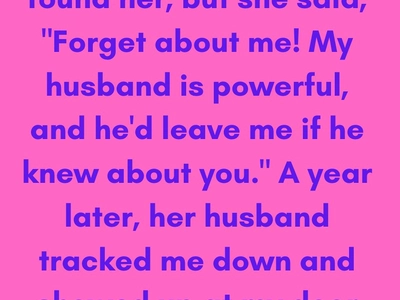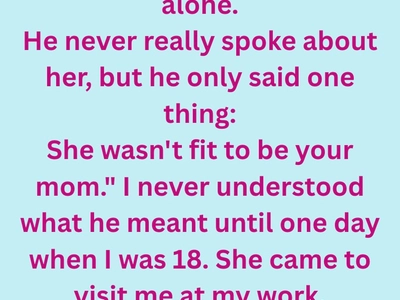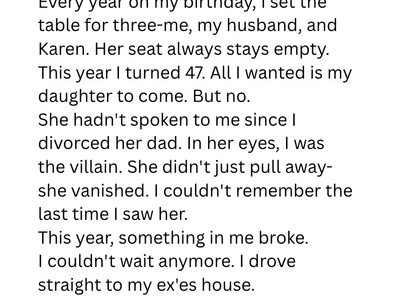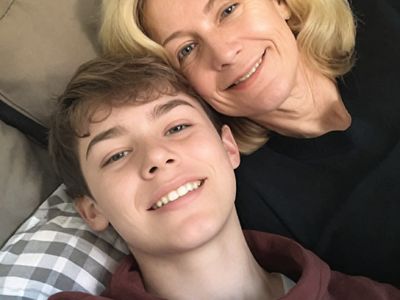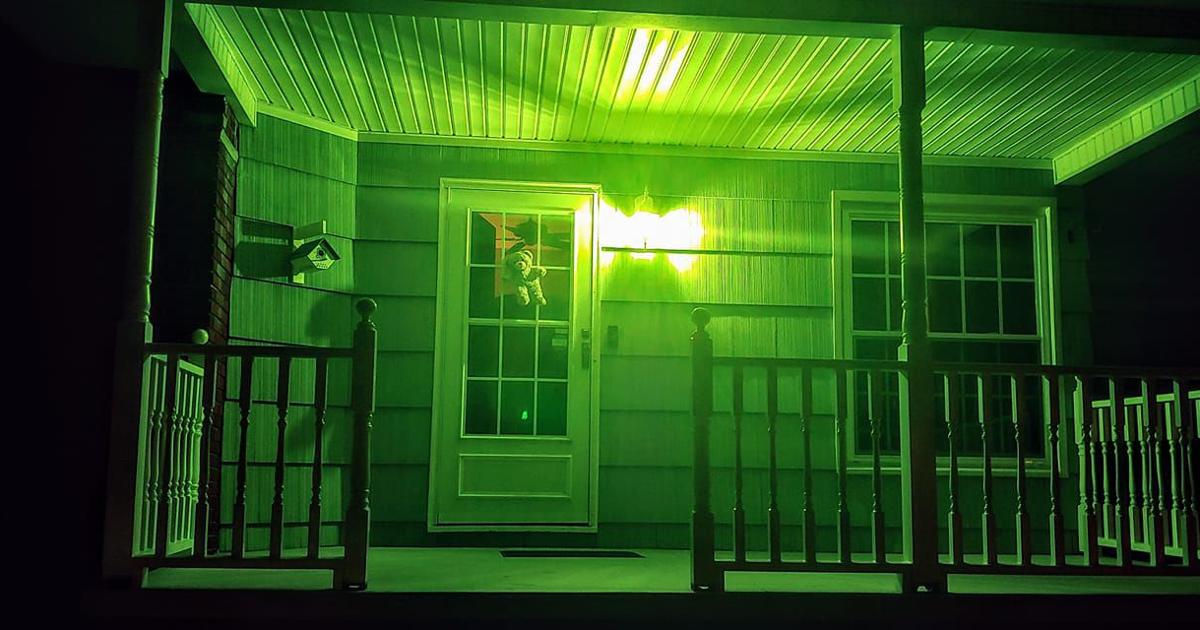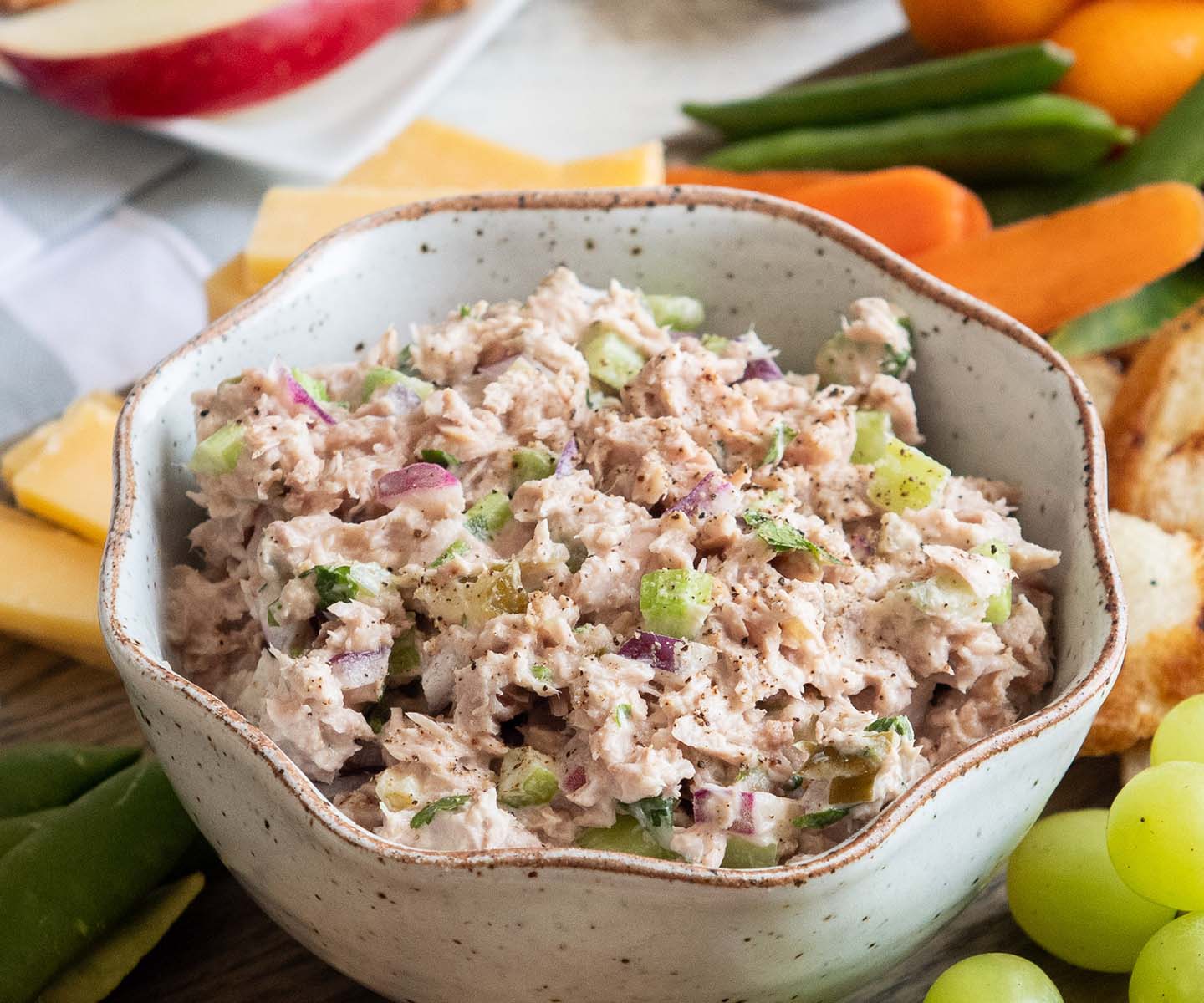The Reunion That Healed More Than I Expected
I was born when my mother was just seventeen — barely more than a child herself. She was scared, lost, and standing at a crossroads that would shape both of our lives forever. When she decided to give me up for adoption, she did it not out of selfishness, but out of a deep, trembling hope that I’d have a better chance than she ever did. She wanted me to grow up in safety, in love, in a world bigger than the one she could offer at seventeen.
But as I grew older, that decision became the mystery that defined my life. Every birthday, every quiet night when the house was still, I’d wonder about her. What kind of person was she? Did she ever think about me? Did she imagine what I might look like now, or if I’d inherited her smile, her eyes, her laugh? There were times when I would catch a stranger’s face in a crowd and feel a sharp tug of recognition — only to realize I was chasing a ghost, a dream I’d never seen.
My adoptive parents were kind people. They gave me love, structure, and a name I could be proud of. But there was always an invisible thread pulling me toward something unfinished — the unanswered question of where I truly came from. I didn’t resent the life I had; I just couldn’t stop wondering about the one I didn’t.
By the time I turned twenty, that longing had turned into something stronger — a quiet determination. I had grown up enough to face whatever truth waited for me. So one day, after weeks of searching through records, making calls, and following faint trails of information, I found her. My mother. Her name. Her address. My hands shook as I held the paper, realizing that the woman I’d dreamed about for years was now just one step away.
The day I decided to meet her, I could barely breathe. I stood outside her door for what felt like an eternity, my heart hammering so loudly I was sure she could hear it from inside. The small house was surrounded by a neat garden — flowers trimmed perfectly, everything in order. It felt like the kind of life that didn’t have room for chaos, or secrets.
When the door opened, time stopped. There she was — my mother. Her hair was lighter than I expected, her eyes tired but kind. And then, they filled with tears. For a brief, shining second, I thought she might pull me into her arms, that everything would fall into place. But her lips trembled, and her words came out like glass shattering.
“Forget about me,” she whispered. “Please. My husband is powerful, and if he finds out about you, he’ll leave me. I can’t lose everything.”
It felt like the ground disappeared beneath my feet. I nodded, though my throat burned with things I couldn’t say. I wanted to tell her that I didn’t want to destroy her life. That I didn’t need much — just a moment, a memory, something real. But the look in her eyes told me she was already drowning in fear.
So I walked away.
The air outside felt heavy. Every step I took made the ache in my chest grow sharper. I told myself to be strong, that I had survived worse. But nothing prepared me for the sting of being rejected twice — once at birth, and again in person. It wasn’t anger I felt. It was something quieter, sadder — the deep loneliness of being unwanted.
Still, a part of me understood her. She wasn’t cruel. She was scared. Fear makes people do strange things — it builds walls between hearts that should never be divided. I told myself that maybe she had built a life she couldn’t risk losing, a world that didn’t have space for her past. I told myself those things so I could keep walking, so I could breathe.
A year passed. I learned to live around the empty space she left behind. I threw myself into work, into friends, into anything that could distract me. Some nights, though, I’d catch myself staring at the ceiling, thinking about the woman who had given me life and then turned me away. I wondered if she ever thought of me, if she ever regretted the words she said at that door.
Then one evening, as rain tapped softly against the windows, there was a knock on my door.
When I opened it, a man stood there. He looked older, with tired eyes and hands that trembled slightly. His clothes were neat, but his face carried a kind of grief I recognized immediately — the grief of someone who had lost something they didn’t know how to find again.
“Are you…” He hesitated. “You’re her son, aren’t you?”
I froze. “Who are you?”
He swallowed hard. “I’m your mother’s husband.”
The words hit me like a gust of cold air. I didn’t know whether to slam the door or invite him in. Before I could decide, he continued, his voice shaking.
“I found out everything,” he said quietly. “I know about you. She never told me — not until recently. She was terrified I’d leave her if I knew. But I didn’t leave. I just… I didn’t know how to face what she’d been hiding all these years.”
I felt my throat tighten. “Why are you here?”
He looked at me with tears in his eyes. “Because she wanted to reach out. She wanted to see you again. But she didn’t know how to do it. And now—” His voice broke. “She’s gone.”
The words echoed in the quiet room. Gone.
He told me that my mother had fallen ill a few months ago. That she’d spent her last days filled with regret, whispering my name, wondering if I’d ever forgive her. She had written letters but never sent them. She’d asked him to find me, to tell me she never stopped thinking about me. That every birthday, she’d light a candle and whisper a prayer for the boy she had once held in her arms for only a moment.
I stood there, trying to process everything. My chest felt tight, my eyes burning. The pain of her rejection, the years of silence — it all collided with this new truth: she had loved me, even when she was too afraid to show it.
The man handed me a small envelope. It was old, the paper soft and creased from being opened too many times. Inside was a letter written in shaky handwriting.
My hands trembled as I unfolded it.
My dear son,
There isn’t a day that passes when I don’t think of you. When I said those awful words — “forget about me” — I thought I was protecting both of us. I thought if I disappeared from your life, you could live free of my mistakes. But I’ve learned that love doesn’t vanish just because we hide it. It waits, quietly, hoping to be found again.
I’m sorry I wasn’t brave enough. You were never a secret to me, even if the world made you one. I hope one day, when you think of me, it’s not with anger but with peace. I loved you from the very beginning, and I love you still.
— Mom
By the time I finished reading, I couldn’t see the words through the blur of my tears. All the years of wondering, of aching to know if I mattered to her, were suddenly answered in that fragile piece of paper. She had loved me. She had always loved me.
Her husband — the man who had come to find me — stayed quiet for a long time. Then he said something I’ll never forget.
“She made mistakes, but she never stopped being your mother. I think… she wanted you to know that love, even when it’s hidden, never really dies.”
That night, after he left, I sat by the window holding the letter, reading it over and over. I thought about the girl she must have been — seventeen, scared, trying to make an impossible choice. I thought about the woman she became — older, trapped by fear, yet still carrying love in silence.
I realized something then. Forgiveness isn’t about pretending the pain never happened. It’s about setting yourself free from it.
For so long, I carried that wound — the rejection, the shame, the unanswered questions. But as I held her letter, I felt something shift inside me. The anger, the sorrow — they began to loosen their grip. I understood that her silence hadn’t been born from cruelty, but from fear. Fear of judgment, fear of loss, fear of the truth unraveling the fragile life she had built.
And in that understanding, I found peace.
I decided to visit her grave a few weeks later. It was a quiet cemetery surrounded by trees, the kind of place where the wind always seemed to whisper. I brought her favorite flowers — I knew because her husband had told me. As I knelt there, I placed the letter back in my pocket and spoke softly, as if she could still hear me.
“I forgive you, Mom,” I said. “And I love you too.”
The wind stirred the leaves around me, and for a moment, I swear I felt her there — not in the way you feel a ghost, but in the way you feel sunlight on your skin after a long winter.
Since that day, I’ve learned to see love differently. It’s not always loud or visible. Sometimes it hides in silence, in fear, in the choices people make when they don’t know what else to do. Sometimes love is messy and imperfect, but it’s still love.
I often think about how our paths crossed so late, how life kept us apart for so long. Yet I also know that the love she left behind changed me. It taught me that forgiveness doesn’t erase pain — it transforms it. It turns it into something you can live with, something that can even make you stronger.
I still keep her letter in a small box by my bed. Some nights, I take it out and read it again, not out of sadness, but gratitude. Because even though we didn’t get the years we lost, we still found a way back to each other — not through time, but through truth.
And now, whenever I see a mother holding her child, I feel warmth instead of envy. I know that love can survive even the longest separations, even the deepest silences.
My mother’s story isn’t one of perfect love — it’s one of broken love that still managed to find its way home.
And maybe that’s what makes it beautiful.
